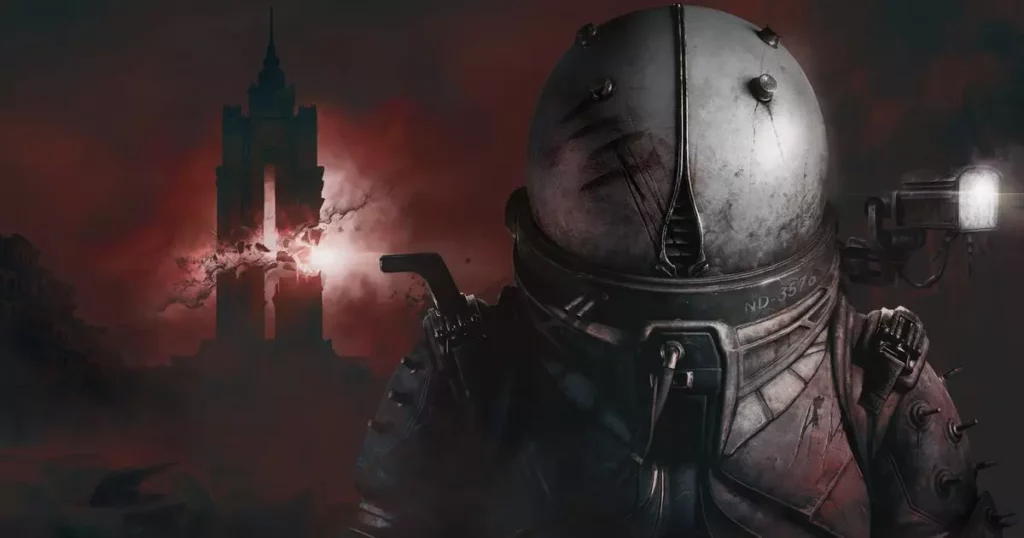In a gaming landscape saturated with mindless shooters and repetitive storylines, Cronos: The New Dawn emerges as a beacon of creativity. Developed by Bloober Team, which has garnered a reputation for redefining the horror genre through titles like Silent Hill 2 and The Medium, this upcoming adventure blends the eerie aesthetics of cyberpunk with the chilling complexities of psychological horror. What makes Cronos particularly compelling is not merely its thematic foundation, but its audacious undertaking to explore a nested narrative set against the backdrop of historical Poland—a venture that can either energize the genre or risk alienating more casual gamers.
The Enigmatic Setting: A World Decayed
The game sets players in a dystopian future ravaged by “The Change,” an event that casts Earth into a haunting, spectral wasteland. In doing so, Cronos challenges gamers to immerse themselves in a narrative that merges the past and the present. Assuming the role of a “Traveller,” players are enlisted by a mysterious organization known as the Collective. This expedition into grim realities presents more than just visual horror; it becomes a platform for reflecting on Poland’s tumultuous history and culture. The narrative’s structural approach is audacious—it prompts us to question how the past continues to haunt contemporary society, establishing a broader thematic resonance that could divide opinions on entertainment versus philosophical introspection.
While many games opt for safe, linear storytelling, Bloober Team’s choice to interweave history and personal exploration is both ambitious and risky. It raises questions about whether players are ready to embrace such heavy thematic elements in a genre often known for visceral thrills rather than intellectual provocations.
Visuals Designed for Discomfort
A characteristic feature of Cronos lies within its environmental design, where grotesque entities reign supreme. These creatively monstrous beings—armed with too many appendages and jagged teeth—evoke legitimate fear, reminiscent of earlier works like The Medium. The aesthetic choices here force players into an uncomfortable realm, blurring the lines between fascination and dread. While this design ethos may resonate with dedicated horror fans, it risks leaving less seasoned players feeling overwhelmed or even repulsed.
Indeed, the question lingers: Are we to find beauty in this horror, or is it merely unsettling? It’s a duality that invites diverse reactions—some may find catharsis in the chaos, while others may recoil and miss the poignant exploration beneath the surface.
Expanding Combat and Challenges with a Twist
One notable divergence from Bloober’s past formula is Cronos’ shift towards a more action-oriented approach. The inclusion of various firearms and the novel “Harvester” gauntlet adds a layer of mechanics that were notably absent in previous outings. This change in gameplay purports to broaden the audience, inviting players to engage in combat beyond the mere melee confrontations characteristic of earlier games.
Time-manipulation mechanics add an intriguing layer of strategic engagement, allowing players not only to engage enemies but also to navigate through intricate terrain puzzles. However, the underlying fear remains: is this shift toward more dynamic combat a deliberate appeal to mainstream sensibilities? While balancing frenetic action and cerebral exploration, the game risks losing the identity that endeared Bloober to its fan base. The novelty of combining gunplay with psychological narratives is appealing, but this duality must be executed with precision; otherwise, it teeters on the verge of chaos.
Confronting Cultural Identity
What’s most compelling about Cronos: The New Dawn is its potential for cultural introspection. Its exploration of the historical and psychological tapestry of Poland allows players to engage with a dimension of horror that transcends mere gameplay. The narrative invites a dialogue about memory, society, and identity—an endeavor that marks the game as more than just an entertainment piece; it becomes a cultural artifact.
This unique approach is reminiscent of Bloober Team’s previous efforts in titles like Observer, which also flirted with deeply personal and collective experiences. This time around, as players navigate the complexities of time and identity, they may find enriching layers of meaning that provokes reflection on the nature of history and its implications for the present.
In an age where many games prioritize production value over substance, Cronos boldly embraces this multifaceted approach. While the blend of horror and history is not universally palatable, it offers a platform that challenges players to stretch their perspectives.
The anticipation surrounding Cronos: The New Dawn is palpable; it is not merely about the thrill of scares, but rather an experience that could spur conversations about what horror games can accomplish beyond the confines of traditional storytelling. As we eagerly await the game’s release, the hope remains that it will enrich the horror genre with its bold narrative choices and complex moral dilemmas.









Leave a Reply